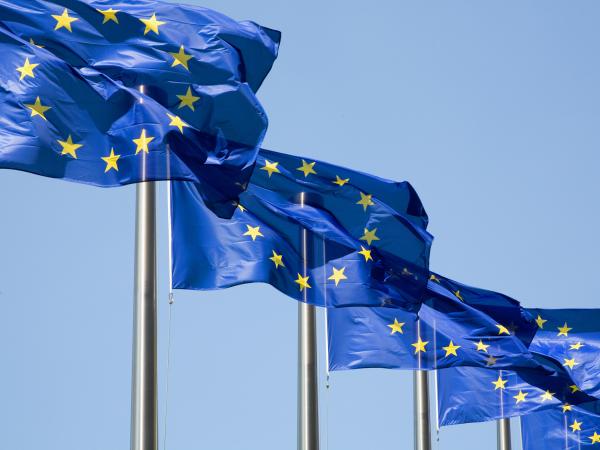Challenging decision-makers to put patients back in the centre
Why do we engage in Policy work for Research?
Beyond our involvement in cancer research and cancer care, we address governments and decision-makers, especially on the European level. Our participation in policy discussions aims to drive change and ensure that prioritising proven benefits for patients is the main focus in cancer-related decisions and legislation.

Unlocking Potential - overlooked treatments in cancer research
Incentivize development of valuable treatments neglected by commercial players
In our research work, we stringently select candidate treatments to support their further development, but due to financial limitations we can’t move mountains.
We acknowledge that in the oncology community there is a stockpile of affordable treatments, with potential major clinical benefit for patients in need, that are NOT integrated into the cancer care system because there are no commercial drivers behind them.
These include new surgical techniques, radiotherapy protocols, drugs currently used off-label and combinations thereof. Collaboration between governments and non-profit organisations should lead to an independent clinical trial infrastructure for comparative studies, resulting in optimal treatments for patients.
Within this infrastructure the Anticancer Fund advocates for well-designed clinical trials, with clinically meaningful end points, without duplication and with protection against futility. These trials should be for treatments that meet patient needs, that respect their engagement and participation and protect their interests.
Manifesto 2024-2029
After the European Parliament elections in 2024, the European Union entered a new political term for 2024-2029. This change offers a window of opportunity to inspire newly elected Members of the European Parliament (MEP’s) and guide future health policy.
The Anticancer Fund seized this opportunity by publishing a Manifesto 2024-2029, calling for a complementary development and approval pathway for promising cancer treatments that lack commercial incentives. This manifesto was shared with key policymakers, urging them to prioritise action during this new mandate.
Our message resonated widely: more than 40 organisations including patient advocate groups, academic experts, health insurers and peer organisations from 11 countries endorsed our manifesto. Together, we are pushing for policies that ensure all cancer patients gain access to better treatments.

Bridging Gaps: ensuring clinical uptake of effective interventions
Ensure clinical uptake of effective interventions not promoted by commercial parties
In some cases, despite substantial evidence of clinical benefit, treatments remain outside the cancer care system due to lack of financial incentives. The Anticancer Fund strives to translate positive outcomes of high-quality clinical research into guidelines and implementation in clinical practice.
For drugs, new indications should be added to the label as soon as it is proven that the drug is effective & safe and that the drug has demonstrated added patient value.
To maximize our impact, an open dialogue with all relevant stakeholders is paramount, as we believe upfront dialogue before starting pivotal clinical research is of prime importance in making treatments available, when the results are positive.
The Anticancer Fund persistently puts these items on the agenda of decision-makers and other stakeholders, to convince them of the societal return on investment in treatments that are outside the scope of the industry. A long-term vision is essential to ensure that independent clinical research, conducted by academics/not-for-profit organisations, can complement commercial research. However, structural funding solutions will be needed to facilitate non-commercial innovation.
Regulatory pathways and solutions to current barriers must be addressed so that, ultimately, every cancer patient has access to optimal treatment options.
How do we engage in Policy work for Research?
Being a small Belgian research organisation, with an international scope and having a big and important message to spread, we make sure our voice is heard.
We focus on Europe as regulatory pathways for life-threatening diseases, including cancer, are mainly being regulated at a European level.
- Hence, we attend stakeholder meetings organised by the European Commission and provide input to consultation requests on legislative texts that the European Commission has drafted.
- We reach out to European Parliament members dedicated to health topics, and we share our thoughts with the Belgian representation in the European Council.
- We liaise with all decision makers, including Health Technology Assessment bodies and payers, involved in the process of making a treatment accessible to the patients. It is important to understand that a treatment which is approved by regulators or part of official guidelines, does not necessarily guarantee access for patients as reimbursement of treatments is decided at a national level.
- We engage directly with other like-minded non-profit organisations and thus collaborate with allies and peers to strengthen our impact, allowing us to maximise efforts towards a common goal – that cancer patients get access to optimal treatments.
- We are an Associate Member of the European Cancer Organisation, a pro-active and influential federation, working for a cancer free future.
How can we ensure an accessible, sustainable and affordable cancer care in Europe? Repurposing existing medicines offers a cost-efficient way to increase cancer patients’ treatment options. Find out the untapped potential of drug repurposing and how policy makers can help in this video!
Drug Repurposing, the underrated champion of sustainable innovation in oncology
The Anticancer Fund is a proud partner within the REMEDi4ALL consortium, an EU-funded research initiative dedicated to driving forward the repurposing of medicines in Europe.
Over a five year-period, this initiative aims to build a sustainable European innovation platform to enhance the repurposing of medicines and to provide expertise and services across the complete value chain for patient-centric repurposing in all disease areas.
The platform has the potential to reduce the time and costs of drug development by focusing on already approved, discontinued, shelved or investigational therapeutics.
REMEDi4ALL also aims at generating a more favourable policy environment for drug repurposing by bringing together key stakeholders to identify current barriers, and to explore creative solutions and incentives.
